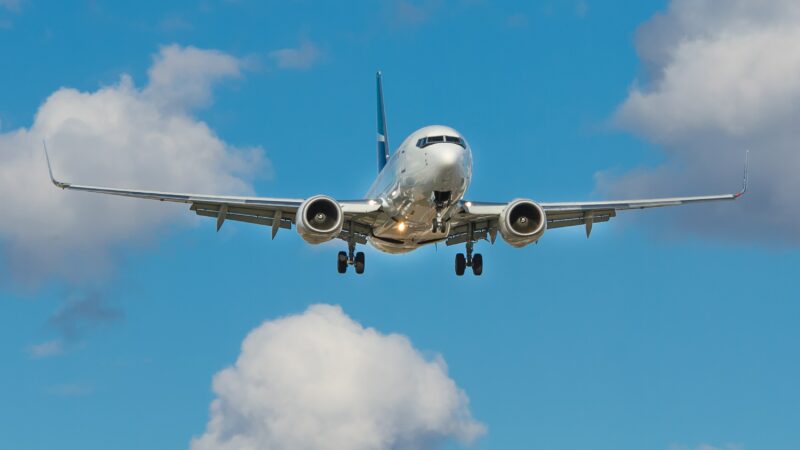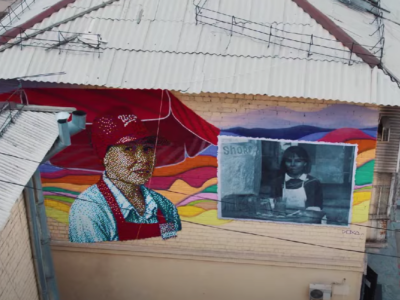
Image by John McArthur. Free to use under Unsplash License.
In January 2023, Russia's Foreign Minister, Sergei Lavrov, expressed hope that flights between Russia and Georgia, which stopped in 2019, will soon resume. At the time, the idea was quickly endorsed by the ruling Georgian Dream Party, which is cozy with Russia. But while the ruling party may have shared Lavrov's hopes, the potential step triggered a wave of criticism from the public as well as Georgia's president, Salome Zurabishvili, who called the move a provocation in a tweet:
Despite the opposition of the Georgian people, Russia has landed its unwelcome flight in Tbilisi#No2Flights2Russia 🚫✈️
— Salome Zourabichvili (@Zourabichvili_S) May 19, 2023
Fast forward to four months, Lavrov's wish was granted as the first flight from Russia arrived at Tbilisi International Airport on May 19, triggering mass protests from the public both at the airport and in front of the National Parliament building. The flight restrictions were lifted on May 10, 2023, following Russian President Vladimir Putin's orders, which also included the lifting of 20-year-old entry restrictions and implementing a 90-day visa-free scheme for Georgian citizens visiting Russia.
Hundreds of protesters have gathered at Tbilisi airport to meet the first flight to arrive from Russia since the ban on air travel between the two countries was lifted last week.
📰Background: https://t.co/JtR3Qs0v3J
📸Mariam Nikuradze/OC Media pic.twitter.com/JCiHKpyLYU— OC Media (@OCMediaorg) May 19, 2023
Protesters burned photos of Putin and Lavrov outside the Georgian parliament just now. They will march towards the Georgian Dream office now. Today's protest is smaller as there was nothing planned until next week, but some people still showed up. Protests will resume next week. pic.twitter.com/YFAdWybx6X
— Mariam Nikuradze (@mari_nikuradze) May 21, 2023
The move put Georgia's long-time EU aspirations under the spotlight. Peter Stano, an EU spokesperson, said: “The EU regrets Tbilisi’s decision to resume flights, which raised ‘concerns’ about Georgia’s EU path and its commitment to stated foreign-policy positions.”
Both Russian and Georgian airlines will now fly passengers between the two countries. According to OC Media reporting, “another Russian airline, Red Wings, is set to run Sochi-Tbilisi-Sochi and Moscow-Kutaisi-Moscow flights three times a week.” Following the first flight and the announcement that two Georgian carriers will resume flights to Russia, scores of protesters also gathered outside the Georgian Airways offices.
Flights between Georgia and Russia have been banned since 2019, on President Putin's orders, following Russian lawmaker Sergey Gavrilov's visit to the country in June 2019. A group of protesters stormed the parliament building in the capital, Tbilisi, just as Gavrilov was getting ready to address legislators from Orthodox Christian countries from the speaker’s chair. Clashes broke out between protesters and the police as a result. More than 200 people were injured.
Opposing viewpoints
Despite the criticism, the ruling Georgian Dream party is confident that the resumption of flights will be beneficial, particularly for Georgians living in Russia who won't have to look for alternative routes to travel back home. The UN estimated that some 450,000 Georgian citizens resided in Russia in 2020. “You know that flights have been restricted one-way. Georgia was sanctioned. If this decision is taken from their side, I don't see anything wrong with it. On the contrary, it can be good for our country. It should be good from the point of view that up to a million of our compatriots live in Russia, and direct flights will even help them to travel,” said Secretary General of Georgian Dream, the Mayor of Tbilisi, Kakha Kaladze, in January 2023, according to reporting by Interpressnews.ge.
Meanwhile, protesters who gathered outside the airport on May 19 told journalists the move meant that the Georgia government was collaborating with the Kremlin. “This is humiliating for the Georgians who stand with Ukraine, and we will not tolerate this situation,” said 49-year-old Lana Gvinjilia to France 24.
The public distress and anti-Russia sentiments were reflected in reactions by the opposition politicians. Leader of opposition Droa, Elene Khoshtaria, accused the ruling government of “treason.” While the leader of the opposition United National Movement, Levan Khabeishvili, said Georgia was en route to becoming “a Russian province.”
For the ruling government, however, the criticism both at home and abroad was unfounded. According to Prime Minister Irakli Garibashvili, who gave a briefing on May 19, the resumption of flights was “only about economic and trade relationships.” Adding that only airlines that are not subject to Western sanctions would be allowed to operate the route.
Separate reports of Russia's Foreign Minister Sergei Lavrov's daughter, who is on an international sanction list, attending a wedding in eastern Georgia also stirred criticism. According to reporting by OC Media, at least 20 people — including leaders of opposition fractions — were detained for protesting the visit of Lavrov’s daughter and relatives. “The activists in Kvareli [Lake Resort in Kakheti] were protesting the wedding of Mika (Moshe) Vinokurov, the brother-in-law of Lavrov’s daughter, according to social media posts published by the groom,” reported OC Media.
Georgia's dangerous balancing act
Some analysts have questioned the decision, wondering whether Russia has its own angle in lifting Georgians’ visa requirements and resuming flights. “The most obvious motive, in this case, would be to drive a wedge between Georgia — which aspires to join both NATO and the EU — and the West,” wrote journalist Vladimir Solovyov in his overview for the Carnegie Endowment for International Peace. Among other reasons suggested by Solovyov are exploiting tensions between Georgia and its Western allies, impacting Georgia’s relations with Ukraine, as well as Russia's aspirations to keep the ruling Georgian Dream in power for as long as it can.
The latter point was also mentioned by Thomas de Waal, a leading expert on the region. In a recent interview with The New York Times, de Waal said, “The No. 1 priority of this government right now is regime survival, and they are highly transactional in that regard.”
However, the risks of strengthening ties with Russia could threaten Georgian Dream's aspirations to remain in power. According to Alexander Atasuntsev, an independent journalist specializing in post-Soviet affairs, “All in all, the Georgian Dream’s gains from rapprochement with Moscow are quite nebulous, while the risks are very real.” Atasuntsev says the risks are reflected in a series of “illogical and unforced decisions” made by the Georgian Dream lately. The attempt to pass Georgia's very own “foreign agent” law in early March 2023 is one. After days of mass protests, the ruling government of Georgian Dream announced they would rescind the bill, in a major victory for civil society workers and protestors. Another questionable decision by the Georgian Dream was to withdraw from the Party of European Socialists following the latter's criticism of the ruling party's decision to participate in the Conservative Political Action Conference (CPAC) in Hungary in early May.
Georgia will hold the next round of parliamentary elections in 2024. And according to Atasuntsev, the impact of these and other controversial decisions by the ruling government in Georgia, especially vis-a-vis its courtship with Russia, may reflect in the outcomes of the vote. That and the EU's potential refusal “to grant Georgia candidate status due to its excessive flirting with Moscow” may come at greater costs for the ruling party.







1 comment
Can’t see how following the interests of the majority can “come at greater costs” for the majority party. While we enjoy open borders inside EU, why wouldn’t we understand that other people need open borders and easy routes at their nearest border as well.